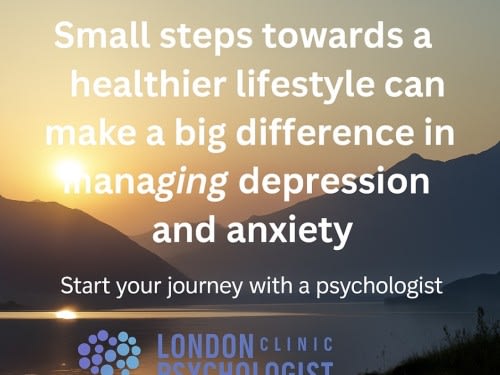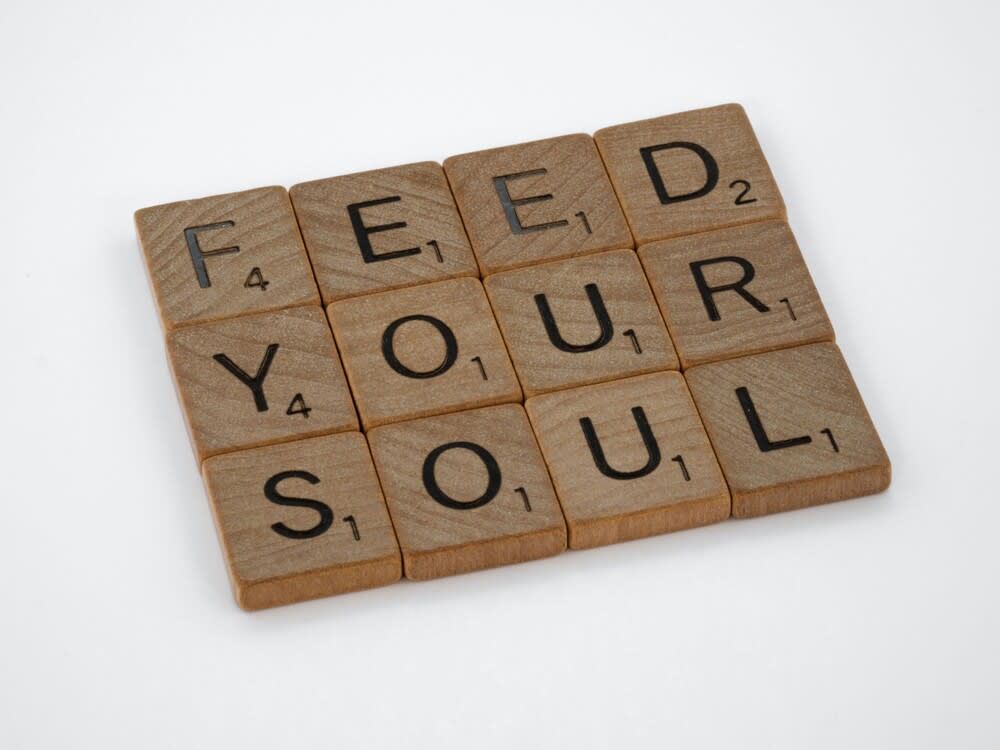Small Steps Big Shifts

posted 30th June 2025

Small Steps, Big Shifts: How Positive Thinking, Sleep, Diet, and Exercise Can Support Your Mental Health
In today’s fast-paced world, it's easy to become overwhelmed. Anxiety and depression often feel like enormous obstacles that drain motivation and distort perspective. But research consistently shows that small, manageable lifestyle changes—when done consistently—can have powerful long-term effects on mental wellbeing.
At the London Clinic Psychologist, we encourage a gentle but structured approach to change. You don’t need to turn your life upside down to feel better. You just need to start.
The Power of Positive Thinking
Positive thinking is not about ignoring reality. It’s about learning to reframe your thoughts so they support growth, not defeat. Individuals with depression often experience cognitive distortions—such as black-and-white thinking or catastrophising—that fuel low mood. A psychologist trained in Cognitive Behavioural Therapy (CBT) can help you identify and challenge these patterns.
Positive thinking isn't pretending things are fine. It's recognising you have the strength to respond differently.
Sleep: The Unsung Hero of Mental Health
Poor sleep isn’t just a consequence of mental illness—it can also worsen it. Sleep deprivation impairs concentration, increases irritability, and reduces emotional resilience. According to the DSM-5, disrupted sleep is a core diagnostic feature of both anxiety and depressive disorders.
🛌 Building a consistent sleep routine—same bedtime, same wake time—can recalibrate your internal clock and improve mood regulation. Psychologists can help by offering sleep hygiene strategies and behavioural tools to address insomnia.
🍎 You Are What You Eat (Mentally Too)
A growing body of evidence in nutritional psychiatry suggests a direct link between diet and mood. Diets high in processed foods, sugar, and caffeine can lead to crashes in energy and mood, while nutrient-rich diets support neurotransmitter production and brain health.
✅ Omega-3 fatty acids, B vitamins, and complex carbs are all known to support emotional balance. Making one or two dietary swaps per week can begin to lift brain fog and improve energy.
🏃♀️ Move Your Body, Shift Your Mood
Exercise is a natural antidepressant. Physical activity releases endorphins, boosts dopamine and serotonin, and improves sleep. But for someone in the grip of depression or anxiety, the idea of running a mile can feel absurd. That’s why we recommend starting small.
🚶 A 10-minute walk. Some light stretching. Dancing in your kitchen. It’s not about the gym—it's about momentum.
💬 Why a Psychologist Can Help
When you're struggling with your mental health, even the smallest actions can feel like climbing a mountain. That’s where a psychologist can make all the difference. At our clinic, we help you:
Set achievable, tailored goals
Track small wins and reframe setbacks
Stay accountable without judgment
Uncover unhelpful patterns and create new habits
We help you build a toolkit, so you’re not just surviving—you’re developing skills for long-term change.
Small Steps = Big Change
You don’t need to be perfect. You just need to start. One meal. One walk. One night of decent sleep. One kind thought about yourself. These are the quiet foundations of mental recovery.
When you focus on small, achievable steps, you begin to experience success—and success is motivating. Over time, those small shifts create new pathways in the brain, reinforcing resilience and hope.



